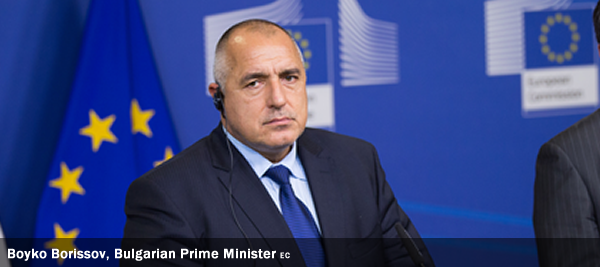Bulgaria’s failure to adequately investigate and prosecute hate crimes is fuelling fear, discrimination and ultimately violence, says Amnesty International in a new report published today.
Missing the point: Lack of adequate investigation of hate crimes in Bulgaria documents the severe impact of hate crimes on victims and highlights how the authorities’ failure to tackle entrenched prejudice against asylum seekers, migrants, Muslims and lesbian, gay, bisexual and transgender people is fuelling further violence and discrimination.
“Hundreds of people from minority groups have experienced hate crimes and many more have no confidence in the authorities to protect them,” says Marco Perolini, Amnesty International’s researcher on Discrimination in Europe. “The Bulgarian authorities urgently have to take a strong stand and ensure they are adhering to national and international laws, ensuring human rights for all.”
Legislation exists in Bulgaria to prosecute hate crimes linked to racism and xenophobia but authorities consistently fail to identify and adequately investigate them.
Attacks against migrants and asylum seekers spiked in 2013, according to the Bulgarian Helsinki Committee and other local organizations. The Deputy Prosecutor General informed Amnesty International that the Sofia Prosecution Office opened 80 pre-trial criminal proceedings concerning crimes against ethnic minorities – including migrants, asylum seekers, Roma and ethnic Turks — between January 2013 and March 2014. However, the collected data is not comprehensive and does not reflect the full extent of these abuses.
Nazir, an asylum seeker from Iraq was attacked with metal knuckledusters by a group of eight or nine people in September 2013. He was hospitalised for nine days and had to have two operations. Police failed to come to the hospital to take Nazir’s statement and refused to register his complaint afterwards. Nazir recounted how the police “told me to go away or they would send me back to Iraq.” When questioned by Amnesty International, the Ministry of the Interior said two police officers were sanctioned for lack of due diligence in this case after an internal inspection, but it is currently unclear whether or not an investigation into the attack against Nazir has been launched.
For certain crimes, such as murder or physical assault, a racist or xenophobic motive constitutes an aggravating factor and attracts an additional penalty, however authorities often treat these crimes as motivated by hooliganism, which prosecutors told Amnesty International is easier to demonstrate. This is partly due to the fact that many officials lack the relevant knowledge and experience to be able to put the existing laws into practice.
“Often, discriminatory elements of the crime, such as racist insults, are simply overlooked by the authorities. The euphemism of hooliganism is no substitute for prosecuting crimes as what they really are,” says Marco Perolini, Amnesty International’s researcher on Discrimination in Europe. “Racism and xenophobia can only end if the authorities acknowledge and document their existence.”
Metin, a Bulgarian citizen of Turkish origin, was brutally attacked by a group of skinheads dressed in black outside an apartment block, home to a large number of migrants. He sustained life-threatening injuries and spent several weeks in a coma. One of the attackers shouted to a man who tried to intervene when they were attempting to break into Metin’s apartment prior to the attack: “Why are you defending migrants? They are killing Bulgarian girls.” Police apprehended the suspects on the spot and a pre-trial investigation was opened for attempted murder motivated by hooliganism.
There is no legislation in Bulgaria to prosecute homophobic hate crimes which are currently investigated and prosecuted simply as hooligan acts. In January 2014, the government proposed a new criminal code, which included sexual orientation as a prohibited hate motive, but the law’s adoption was suspended in anticipation of parliamentary elections in October 2014. The new government is yet to commit to the change.
Few of those who do report hate crimes receive justice through the courts or reparation. Amnesty International spoke to complainants who were not informed about their rights as victims or any developments in their case, which falls short of what is required by Bulgarian national law.
Aurore, a black French national, was physically assaulted at a bus stop in Sofia by a group of seven or eight men. They imitated a monkey and then pushed her to the ground and kicked her. Her white friends who were with her had not been targeted, and it is clear she was a victim of a racist attack. She was never summoned as a victim to appear in court nor informed about the court hearing. The court absolved the suspects of all criminal liability and imposed a fine.
“Bulgarian authorities must investigate, acknowledge and publicly condemn hate crimes to prevent such crimes in future and to challenge the deeply entrenched prejudices that exist in Bulgarian society,” concluded Marco Perolini.
